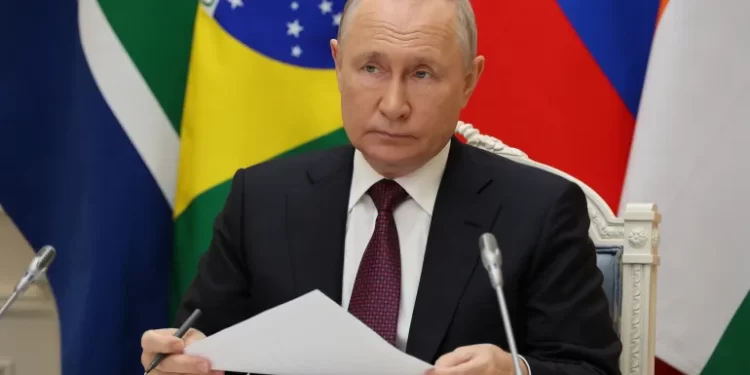ZANU PF, the ruling party in Zimbabwe, has shared a letter believed to be from Russian President Vladimir Putin, congratulating President Emmerson Mnangagwa on his victory in the recent presidential election. The authenticity of the letter is uncertain, but ZANU PF did tag Putin’s official Twitter account.
The Zimbabwe Electoral Commission declared Mnangagwa the winner with 52.6% of the votes, while Nelson Chamisa of the Citizens Coalition for Change (CCC) received 44% of the votes. It is worth noting that other countries, including Namibia, South Africa, and Tanzania, have also congratulated Mnangagwa on his win. The party posted:
Message from @KremlinRussia_E to Cde ED!!
The attached letter read:
HIS EXCELLENCY PRESIDENT OF THE REPUBLIC OF ZIMBABWE
CDE. EMMERSON DAMBUDZO MNANGAGWA
Harare
Your Excellency, Dear Mr. Mnangagwa,
Please accept the heartfelt congratulations on Your re-election as the President of the Republic of Zimbabwe.
Russia and Zimbabwe enjoy the relations of friendship, as our recent meeting at the Second Russia-Africa Summit fully confirmed.
I trust that Your work as the Head of the State will contribute further to development of the constructive bilateral cooperation for the benefit of our people, in the interests of strengthening security and stability on the African continent.
I wish You every success, as well as sound health and well-being. Yours respectfully,
V.PUTIN
The letter ignores concerns raised by some observer missions regarding irregularities in the electoral process. It comes as the opposition Citizens Coalition for Change (CCC) led by Nelson Chamisa has called for fresh elections arguing that the electoral process was flawed.
In international relations and diplomacy, congratulatory messages hold significance as they represent a customary practice of acknowledging and respecting the outcome of elections in other countries. Congratulatory messages are a diplomatic gesture that signifies acceptance and recognition of the election results and the legitimacy of the elected leader. These messages serve to establish and maintain diplomatic relations, foster goodwill, and demonstrate support for democratic processes and the peaceful transfer of power. They also provide an opportunity for countries to express their willingness to engage in bilateral or multilateral cooperation with the elected government.
Zimbabwe and Russia have a historical relationship that began during Zimbabwe’s liberation struggle, with the Soviet Union supporting the liberation movements. Today, they maintain diplomatic ties. Russia has invested in Zimbabwe’s mining sector and cooperates in agriculture, energy, and education. Military cooperation also exists, with Russia providing training and equipment to Zimbabwe’s defence forces.
Namibia, South Africa, and Tanzania are among the countries that have extended congratulations to Mnangagwa for his victory.
Source PindulaNews










